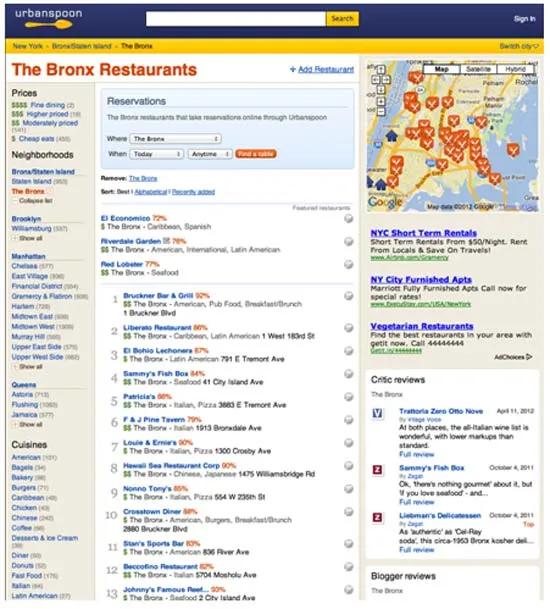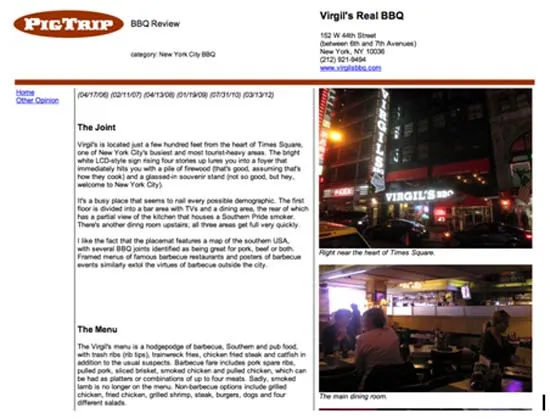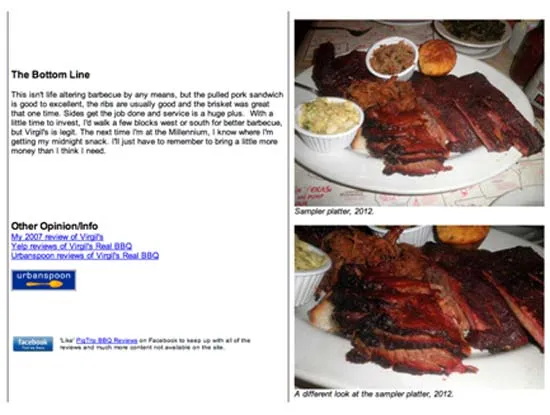Startup Strategies to Get New Customers [Urban Spoon Case Study]
How do start-ups grow? How do you get your first 100 customers? How do you reach your first 1000 customers? The ability to scale and reach new customers is critical to the success of any company. Besides having a great idea or a product, the real challenge is in reaching out to your potential customers and making them use your service instead of your competitors. In this series of articles, we will look at startups that have achieved phenomenal growth without spending too much on advertising.
The first company we will look at is Urban Spoon. Urban Spoon is the website you would go to find out more about local restaurants mainly in the US. They call themselves the world's leading provider of time-critical dining data, and an all-around big player in the multi-billion dollar restaurant information industry. When they launched, there were big competitors like Yelp and OpenTable that were already dominating the industry online. Yet, in a few years they have become the number one restaurant review website, and their website gets around 28 million visits per month. What makes this even more remarkable is the fact that just 3 people founded the company, and they bootstrapped their own startup, until the company was acquired by IAC. There are probably many lessons we can learn from this company like having a great product that serves a need, or building a successful iPhone app to generate traffic, but I have noticed two critical strategies, which they implemented in the early stages that has played a big role in their success and where they are today.
1) Targeting long tail keywords
Urban Spoon knew that in order to succeed they would have to drive people to their website from search engines like Google. However, companies like Yelp dominated most of their top keywords, and they knew they did not have the time or the money to take them head-on. They solved this problem by ignoring the top keywords, and instead aligning their website for more in-depth keywords. For example, initially they avoided broad keywords like ‘New York Restaurants’ and instead targeted specific neighborhood name restaurants – e.g. ‘The Bronx Restaurants’. These specific keywords were high quality keywords but were searched less than the broader general keywords. As they were searched less, most of the big competitors were not optimizing their website for these keywords. By combining many different long-tail keywords, the search volume added upon the whole, and they started getting quality visitors to their website from search engines.

The page above shows all the restaurants in The Bronx neighborhood. By creating similar good quality pages for every area, they were able to dominate search results on Google. Google awarded them for these high quality pages by improving their rankings and sending them relevant traffic.
2) Getting inbound links to your website
Basically the more number of quality links you have pointing to your website from other authority websites, the more relevant you are, and the higher your rankings on search engines like Google and Yahoo. Urban Spoon took advantage of this with their Spoon Back Program.Online there are a lot of food bloggers talking about their favorite dish, or restaurants in their area. Urban Spoon rewarded these bloggers by promoting a small brief of their post on the Urban Spoon website. In exchange for this promotion, the bloggers were more than happy to place an Urban Spoon badge on their blog. The badge linked back to the Urban Spoon website, getting them a quality back-link in the process. There are more than 100,000 bloggers who have the Urban Spoon badge on their blog, and this shows search engines like Google, that Urban Spoon is a high authority, relevant website in the restaurant information industry. This strategy alone has allowed them to overtake bigger companies like Yelp, OpenTable etc on Google rankings.
Example of a blogger reviewing a restaurant:

Example of the link back to the Urban Spoon website: The small Urban Spoon image you see on the picture below, links back to the Urban Spoon website.

Urban Spoon has shown that you do not have to have deep pockets to succeed online. More importantly, you need to have a good online strategy that will differentiate you from your competitors and in-turn drive traffic to your website.

This is a guest post by Arjun Rajkumar.Arjun is the founder of First10 SEO Services. First10 provides professional, creative, strategic internet marketing solutions to increase sales online.
They have a Free Website Evaluation tool at First10


![Startup Strategies to Get New Customers [Urban Spoon Case Study]](https://images.yourstory.com/cs/wordpress/2012/05/urban1.jpg?mode=crop&crop=faces&ar=16%3A9&format=auto&w=1920&q=75)




